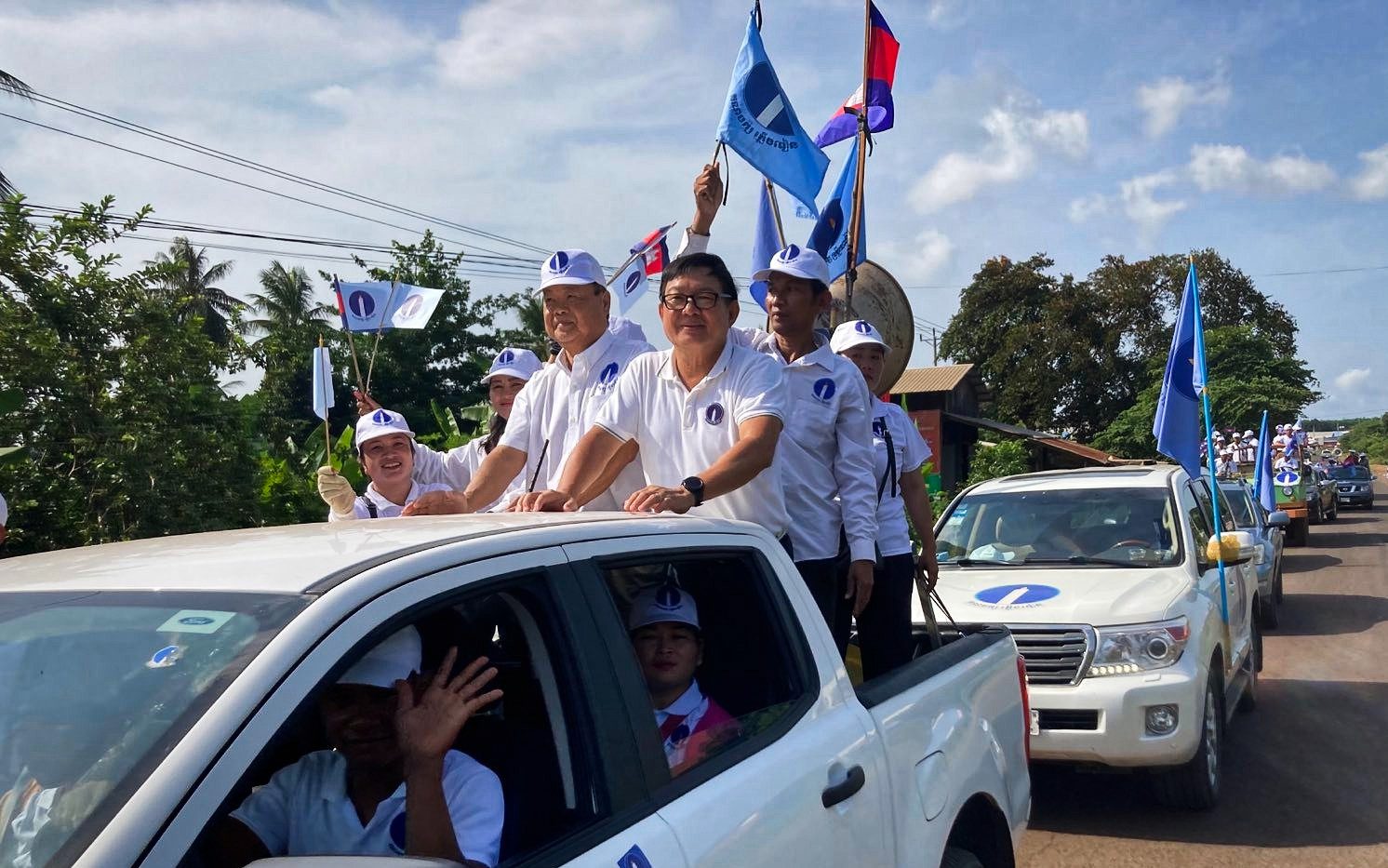Opposition Candlelight Party vice president Son Chhay returned from Australia to Cambodia on Sunday and will face lawsuits lodged over his claim of vote-stealing, including a $1-million suit brought against him by the ruling CPP.
Chhay is facing two lawsuits after alleging there was the “stealing” of votes during the June 5 commune election. The ruling party received around 75% of ballots.
He has missed one court summons over a complaint filed by the CPP, and is next due to appear at the Phnom Penh Municipal Court on July 12 for a similar case brought by the National Election Committee for public defamation.
Chhay told VOD on Monday that he was still waiting for information about the court summons, but he was not worried about the litigation.
Many people had seen irregularities during the election, including intimidation and shuttered vote-count stations, and his words were in line with what others had said, according to Chhay.
“I don’t think what I said is an illegal act,” he said. “I think that what I had raised was not different from others. Other parties and some independent observers also raised these issues.”
Defense lawyer Choung Chou Ngy said the NEC’s complaint was filed by NEC member Dim Sovannarom and spokesperson Sam Sorida, and it demanded a public apology from Chhay.
“I will defend him based on the summons, and he will listen to the claims and accusations from the plaintiff and he will answer,” Chou Ngy said.
He was seeking the next summons date for the CPP-filed case against Chhay. The ruling party’s case was filed by government lawyer Ky Tech on behalf of Senate president Say Chhum, the lawyer said. Chhay had been unable to attend the first court date on June 30 as he was in Australia, Chou Ngy said.
Sam Kuntheamy, who heads elections NGO Nicfec, said he was concerned that ongoing litigation between the top parties would create tension between newly elected commune councilors from different parties.
“When the NEC and party and party file against each other … it makes it difficult for commune chiefs and the elected first and second deputy commune chiefs to work with each other, and it affects [their] feelings. Those who lose out are the voters.”












